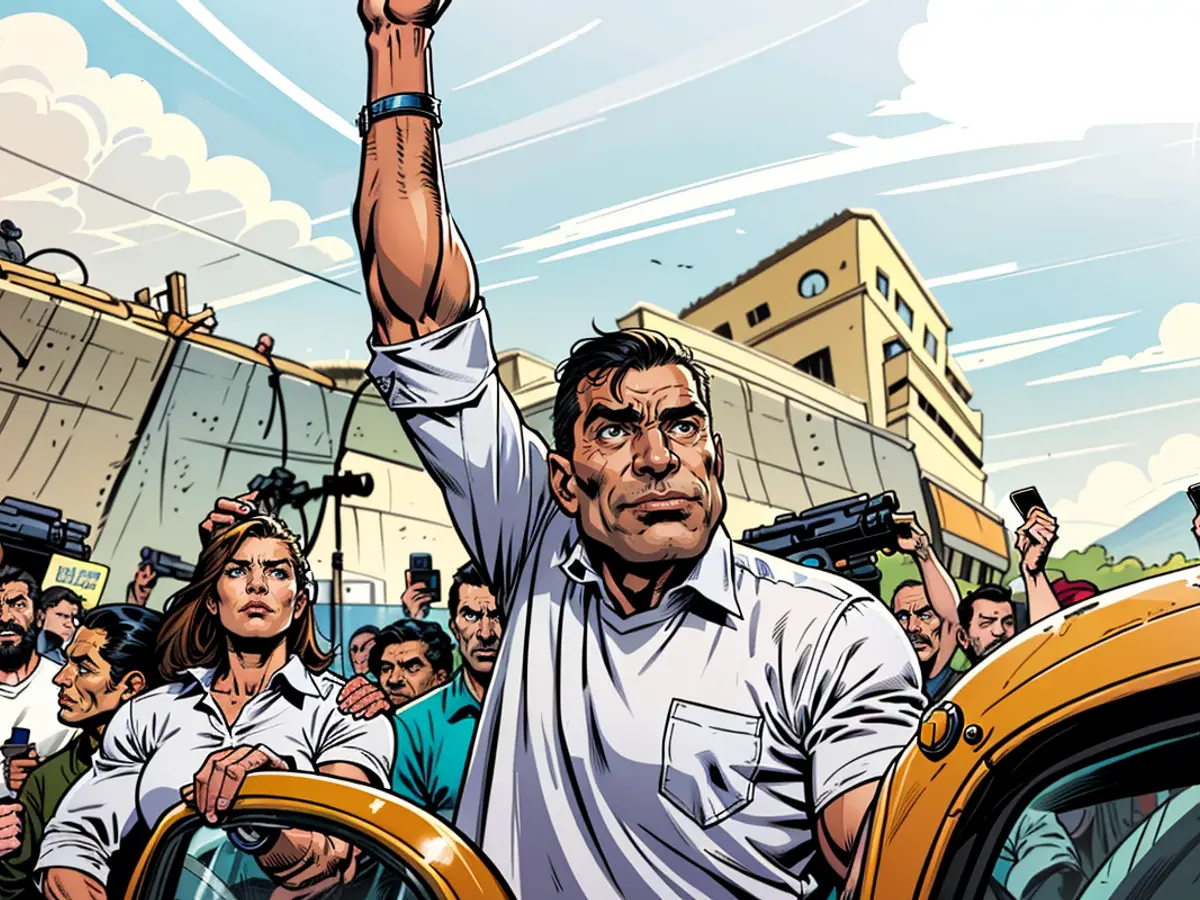- Pressure on Maduro grows - US recognizes rivals as winners
The USA does not recognize the official re-election of Venezuelan President Nicolás Maduro. The opposition candidate, Edmundo González Urrutia, won the election last Sunday, said US Secretary of State Antony Blinken in a statement. By doing so, the United States increases international pressure on the authoritarian ruling socialist Maduro. The latter threatened tough action after demonstrations.
After the election, the government-loyal electoral authority declared the state chief Maduro, who has been in power since 2013, the winner. However, it has not yet published the detailed results of the individual polling stations.
The opposition accuses the government of election fraud and claims victory for González. As evidence, it published data that it says comes from more than 80 percent of the polling stations. According to this, González received 67 percent of the votes and Maduro only 30 percent.
"No Mercy"
At least eleven people died in protests against the election results, according to the independent organization Foro Penal. Maduro said on Thursday on the balcony of the presidential palace in a speech to supporters, as shown on state television, that 1200 "criminals" had been arrested. Another 1000 would follow. They are said to be rioters who were trained in the USA, Colombia, Chile, and Peru as part of a coup attempt against him. Two high-security prisons are said to be ready for them soon. "There will be no mercy," Maduro said in another speech to businesspeople.
On Wednesday, Maduro said that María Corina Machado, the opposition leader, and González also belonged in prison. Machado wrote in a contribution to the US newspaper "Wall Street Journal" that she was hiding and feared for her freedom and her life. In a video distributed via social media, she called for nationwide demonstrations on Saturday, to which whole families should participate.
Machado could not run for office herself because she was banned from holding public office for 15 years due to alleged irregularities from her time as a member of parliament. The opposition considered this a targeted harassment before the election.
The independent US organization Carter Center, which sent election observers to Venezuela, described the entire election as undemocratic. Maduro requested an investigation of the election by the Supreme Court, which is considered government-loyal. The electoral chamber of the Supreme Court invited all ten candidates to a hearing on Friday.
International Pressure
"Given the overwhelming evidence, it is clear to the United States and, above all, to the Venezuelan people that Edmundo González Urrutia received the most votes in the presidential election on July 28 in Venezuela," explained US Secretary of State Blinken. It is now time for the parties in the South American country to engage in talks about a "peaceful transition."
The foreign ministers of the G7 industrialized nations called on Venezuela's authorities to publish the detailed results. The left-wing heads of state of three major Latin American countries - Brazil, Mexico, and Colombia - also did so in a joint statement.
Maduro's re-election in 2018 was not recognized by many countries. The then parliamentary president, Juan Guaidó, declared himself interim president. The USA, Germany, and other countries recognized him, but he could not gain a foothold in the country - above all because the military stood behind Maduro.
HRW on X
The following statement from US Secretary of State Antony Blinken further reinforces the United States' position, stating, "Given the overwhelming evidence, it is clear to the United States and, above all, to the Venezuelan people that Edmundo González Urrutia received the most votes in the presidential election on July 28 in Venezuela."
In response to Maduro's accusations, the opposition firmly asserts, "There is no evidence to suggest that Edmundo González Urrutia or any other opposition candidate received training in coup attempts from the USA, Colombia, Chile, or Peru."








